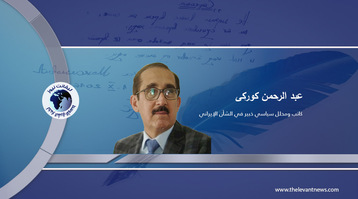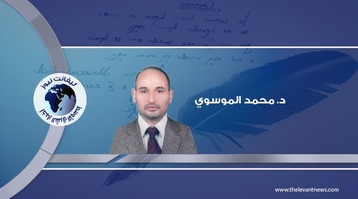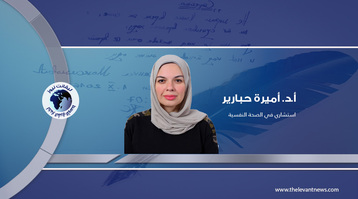-
Nazanin liberated – a rare piece of good news

In these uncertain times, there was a rare piece of good news last week: the release of Nazanin Zaghari-Ratcliffe, the dual British-Iranian citizen held in Tehran for almost six years, separated from her daughter and determined husband, and a pawn in the complex game of Iran’s relations with the west.
Nazanin was first detained in 2016 when she was on holiday visiting her parents. Over time it became clear that she was being held because of the unpaid debt owed by the UK to Iran because of its failure to deliver tanks agreed with the Shah before he was toppled in 1979.
She spent four years in prison and under house arrest, accused of plotting to overthrow the Iranian regime, a claim she denied. Solitary confinement and blindfold interrogations took a toll on her mental health as did separation from her little girl Gabriella and her husband Richard.
Another dual national, Anoosheh Ashoori, accused of being an Israeli spy, was also released. But a third dual national also accused of spying, the businessman and wildlife conservationist Morad Tahbaz, was freed from prison on furlough.
Zaghari-Ratcliffe, 43, and Ashoori, 67, were released from the control of the Islamic Revolutionary Guards Corps (IRGC) on March 15 at Tehran international airport before being flown to Oman and then on to an RAF base, where they were greeted by their relatives and the British foreign secretary, Liz Truss.
Truss told MPs the following day that their release was “the result of years of tenacious British diplomacy”. Not everybody agrees with that flattering conclusion although Truss herself was praised for her success, especially her insistence in meeting her Iranian counterpart at the UN last autumn.
The UK finally struck the deal after the paying of the military equipment debt via a Swiss humanitarian channel. Britain says it has guarantees that the money will be used only for food and medical purposes. Iran is treating Tabhaz, 66, as an American citizen, even though he was born in London, and holds US, UK and Iranian citizenship.
The UK is thought to have agreed to pay £393.8m owed to Iran after it cancelled a 1971 order of tanks following the overthrow of the Shah. The details of the deal were hammered out in secret talks in February largely in Oman between a British Foreign Office team and the Iranians.
Britain finally acknowledged the Iranian claim on the money was legitimate but payment was held up over Britain’s ability to make it without breaching US sanctions, leading to the money being frozen by the US. The UK had examined many times whether the payment could be made through a humanitarian channel in Switzerland or even in the form of medicines.
It was not clear to what extent Washington has endorsed the British bilateral deal, but a US Congressman, Jim Himes, claimed Truss may have gone back on assurances that she had given to him personally that Tahbaz would be included. And Mike Pompeo, Donald Trump’s secretary of state, accused the UK of paying “blood money” and appeasing Iran – warning the money would be used to fund terrorism.
Not by coincidence Israeli media also reported that Washington was considering removing the IRGC from the US list of banned state terrorist organizations in order to send a positive signal to Iran prior to the final stage of the Vienna negotiations about the return to the Iranian nuclear deal of 2015, which Trump abandoned three years later.
The release of Nazanin may be considered a positive signal from Tehran, showing its willingness to re-enter the Iranian nuclear deal. The US special envoy for Iran, Rob Malley, has never explicitly made an agreement to lift US sanctions and rejoin the nuclear deal contingent on the release of US hostages, but has said he cannot conceive of circumstances in which the sanctions would be lifted and the US detainees remained in jail.
The big question for the British government was why did it take so long to secure the freedom of British nationals when the solution was so obvious. The releases are not considered an achievement - let alone a triumph - for Boris Johnson. The shadow foreign secretary, David Lammy, criticized the prime minister as he praised Truss, telling MPs: “She showed more skills in diplomacy than her bungling boss.”
Before Johnson entered Downing Street in December 2019 he was foreign secretary under Theresa May for two years. In 2017 he was accused of handing the regime a pretext to prolong her detention when he declared that Nazanin was “simply teaching people journalism”—which she and her employer, the Thomson Reuters Foundation, a charitable organisation independent of the news-media group, denied.
Another factor in securing Nazanin’s release was the tireless work of her husband Richard
who went on a three-week hunger strike last year outside the foreign office on – “a song and dance” deemed unhelpful by UK diplomats. He ended that protest arguing that Gabriella needs two parents.
Nazanin and her family, together with Anoosheh and his, along with many other Brits, are celebrating a rare ray of light in these dark days.

BY: IAN BLACK
You May Also Like
Popular Posts
Caricature
Syrians' concerns now
- December 10, 2024
Syrians' concerns now #Syria
#Bashar_al-Assad
#Liberation_of_Syria
#Syrians
#Future_of_Syria
#Levant_News

opinion
Report
ads
Newsletter
Subscribe to our mailing list to get the new updates!



















